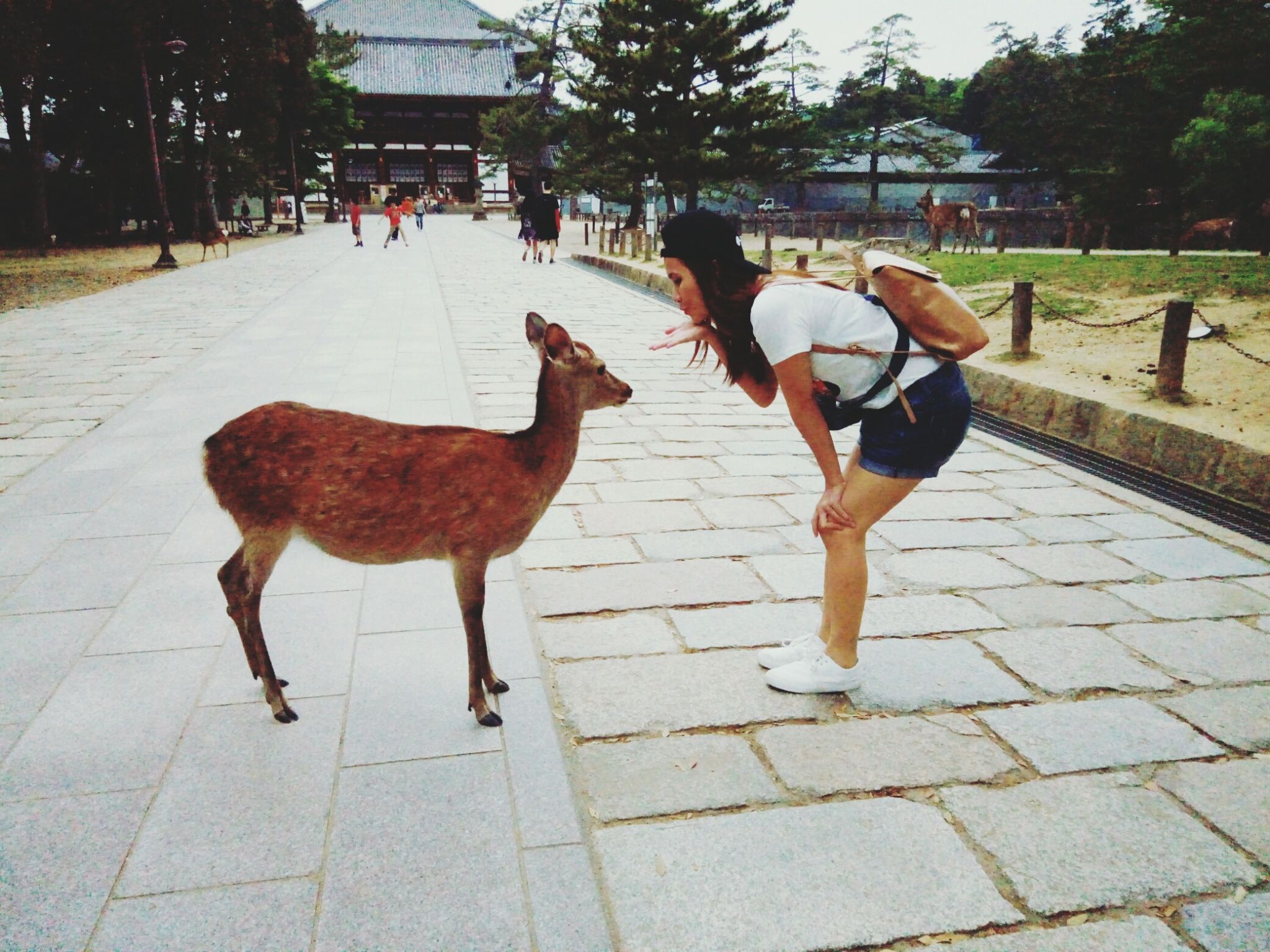🇯🇵 Nara at Dusk – When the Deer Pause, So Do I
🇯🇵 Nara at Dusk – When the Deer Pause, So Do I
In the quiet town of Nara, I learned how stillness walks alongside tradition—and how a deer can teach you to pause.
Some places are remembered by what you did.
But others stay with you for how they made you stop.
Most cities ask you to move. Nara asks you to stand still.
Not because there’s nothing to see.
But because everything—temples, trees, deer—seems to exist in a kind of hush.
As if the whole town is quietly waiting for you to slow down enough to notice.
We arrived late in the afternoon, just before dusk wrapped the rooftops in shadow.
The sun was gentle by then, slipping behind wooden pagodas, casting soft gold over gravel paths.
We didn’t have a plan. Just wandered, slowly, beneath the tall cedars of Nara Park, where the deer walk freely—unrushed, unafraid.
One of them stood in front of us, eyes calm, posture dignified.
We stopped too. Not because we had to, but because we suddenly wanted to.
There’s a kind of reverence in the way silence hangs in the air here.
It’s not the silence of emptiness, but of presence.
Every leaf, every breeze, every soft footstep feels intentional.
We sat on a stone bench near Kōfuku-ji, sipping warm tea from a paper cup, listening to nothing in particular.
It felt like a kind of listening we rarely get to do in daily life.

At Tōdai-ji, we removed our shoes and stepped onto cool wooden floors.
The Great Buddha sat in quiet enormity—still, but not distant.
The scent of incense, the light through lattice windows, the echo of footsteps—it all felt like part of one long breath.
I didn’t pray. I just stood there, hands by my side, heart strangely open.
My husband whispered, “It’s so quiet it almost feels alive.”
And somehow, I understood exactly what he meant.
We didn’t stay in a hotel that night. Just a simple guesthouse tucked into a narrow side street.
Our window opened to a small garden, and the wind chime outside clinked gently through the night.
No traffic. No television. Only the soft rustle of deer grazing nearby.
It reminded me of childhood afternoons in the Mekong Delta—when I would sit by the river with nothing to do but watch the water pass.
Not bored. Just… unhurried.
Nara didn’t give me memories of things I did.
It gave me something rarer—memories of how I felt.
Unhurried. Unburdened. Present.
And I think, years from now, when everything else blurs, I’ll still remember the way that deer looked at me.
And how, for once, I stopped everything and looked back.
And maybe that’s what travel is, at its quietest—
just learning how to stop, and look back.
🌿 Related Stories:
Slow Travel Kanazawa – Where Time Strolls in a Kimono
Coming Soon: Takayama – Where the Mountains Breathe Quiet
✍️ About the Author
I came to Japan not to see everything, but to feel something.
In Kanazawa, I saw time walking in a kimono. In Nara, I learned how to pause when the deer did.
I write about Japan as someone who walks slowly, listens deeply, and believes that the quietest moments are often the ones that last the longest.
“Less but better.”
“Freedom is a quiet morning.”
